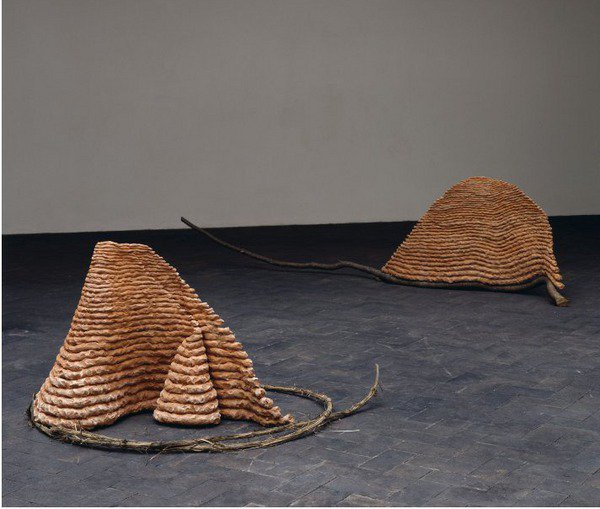Giuseppe Penone
dal 25/4/2013 al 10/8/2013
Segnalato da
25/4/2013
Giuseppe Penone
Kunstmuseum Winterthur, Winterthur
The exhibition includes a multifaceted selection of works going back to the 1960s. From his conceptual drawings to the room-defining bronze plates of Riflesso del bronzo (2005), exemplifying his themes-the perception of the world through the senses; the intersection of nature and culture.

In recent years, Giuseppe Penone, who was born in 1947 in rural Piedmont, has
become one of the central figures in European art. He has been featured in
numerous museum exhibitions, and his works can be found in important collections
all over the world. Since his 1977 show in Lucerne, his work has not been exhibited
in Swiss museums. The Winterthur exhibition includes a multifaceted selection of
works going back to the 1960s.
The road that Giuseppe Penone took to art was very idiosyncratic. It was not at an art school
but in the woods of his home village that, as a young man, he found the stimuli for his first
works on processes of growth in nature. In Turin at the end of the 1960s, he joined up with the
artists of Arte Povera and participated in their exhibitions. In 1977, the Lucerne Art Museum put
on his first exhibition in a museum. Since then, his work has been intensively shown and
collected in France, and increasingly in England, the United States, and Japan. From 1997 until
2012, Penone taught at the École des Beaux-Arts in Paris. The Kunstmuseum Winterthur owns a
number of his works and is now putting on an exhibition, shortly before the show of his
sculptures in the park at Versailles in June 2013.
Penone starts with the elementary experiences that the artist has while working. Among them
is the primary experience of time, which is noticeable, for example, in the growth of trees. To
notice something, register it, and make it visible in a three-dimensional form—Penone allows
the work to emerge from this careful, restrained approach to the world. His work as a sculptor
involves not imposing a form on the material but letting the form develop from the essence of
the material. The finished work tells the story of the process of its creation. Penone thus returns
again and again to the artist's gesture of taking up an object and making something out of it.
For him, the decisive moment is when he touches the object, which already starts the process
of forming and shaping it; this moment of contact is the basis of his reflections on reality.
In cooperation with the artist, this exhibition has been put together with a selection of works
from throughout his varied career, from his conceptual drawings at the end of the 1960s to the
room-defining bronze plates of Riflesso del bronzo (2005) from the Kunstmuseum Winterthur
collection. Well-known works like Gesti vegetali are included, along with a substantial group of
works on paper exemplifying his themes—the perception of the world through the senses; the
intersection of nature and culture.
Penone is a Mediterranean artist whose ideas and work are
shaped by ancient mythology and its rediscovery in the Renaissance.
The exhibition catalogue contains an introduction by Dieter Schwarz and texts by the artist.
Paperback with 120 pages and 80 color illustrations of the exhibited works. 45 CHF
Image: Strutture del Tempo, 1992
Press conference: Friday, April 26, 2013, at 11 a.m.
The opening will take place on Friday, April 26, 2013, from 6:30 to 8:30 p.m., with opening
remarks by Dr. Jürg Spiller, President of the Kunstverein Winterthur, and an introduction to the
exhibition by Dr. Dieter Schwarz.
Kunstmuseum Winterthur
Museumstrasse 52 CH-8400 Winterthur



